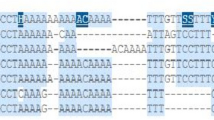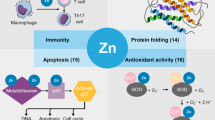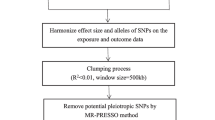Abstract
Glutathione S-transferase T1 (GSTT1) null genotype has been proven to be associated with risks of many cancers. There were also many studies assessing on the association between GSTT1 null genotype and nasopharyngeal carcinoma risk in Chinese, but the findings from those studies were inconsistent. We performed a meta-analysis to provide a more precise assessment on the effect of GSTT1 null genotype on nasopharyngeal carcinoma risk. The PubMed and Wanfang databases were searched to identify eligible case–control studies on the association between GSTT1 null genotype and risk of nasopharyngeal carcinoma in Chinese. The pooled odds ratios (OR) with corresponding 95 % confidence intervals (95 % CI) were used to assess the association. Eight case–control studies with a total of 3,702 individuals were finally included in the meta-analysis. Meta-analysis of a total of eight studies showed that GSTT1 null genotype was significantly associated with increased risk of nasopharyngeal carcinoma in Chinese (OR = 2.27; 95 % CI 1.41–3.67; P = 0.001). The finding from cumulative meta-analysis showed that there was a trend of more obvious association between GSTT1 null genotype and risk of nasopharyngeal carcinoma in Chinese as data accumulated by publication year. Therefore, the GSTT1 null genotype is significantly associated with increased risk of nasopharyngeal carcinoma in Chinese.



Similar content being viewed by others
References
Chakroun A, Guigay J, Lusinchi A, Marandas P, Janot F, Hartl DM. Paraneoplastic dermatomyositis accompanying nasopharyngeal carcinoma: diagnosis, treatment and prognosis. Eur Ann Otorhinolaryngol Head Neck Dis. 2011;128:127–31.
Jia WH, Qin HD. Non-viral environmental risk factors for nasopharyngeal carcinoma: a systematic review. Semin Cancer Biol. 2012;22:117–26.
Yu WM, Hussain SS. Incidence of nasopharyngeal carcinoma in Chinese immigrants, compared with Chinese in China and South East Asia: review. J Laryngol Otol. 2009;123:1067–74.
Cao SM, Simons MJ, Qian CN. The prevalence and prevention of nasopharyngeal carcinoma in China. Chin J Cancer. 2011;30:114–9.
Lee AW, Lin JC, Ng WT. Current management of nasopharyngeal cancer. Semin Radiat Oncol. 2012;22:233–44.
Hayes JD, Flanagan JU, Jowsey IR. Glutathione transferases. Annu Rev Pharmacol Toxicol. 2005;45:51–88.
Hayes JD, Strange RC. Glutathione s-transferase polymorphisms and their biological consequences. Pharmacology. 2000;61:154–66.
8 Fang M, Zeng W, Huang L, Qin S, Zhou J, Sun H, Meng F: Association between glutathione S-transferase T1 null genotype and risk of myelodysplastic syndromes: a comprehensive meta-analysis. Tumour Biol 2013
Zhao Y, Luo Y, Huang B, Qin B, Zhang T, Zhang J, et al. GSTT1 null genotype contributes to increased risk of gastric cancer in Chinese population: evidence from a meta-analysis. Tumour Biol. 2013;34:1691–7.
Dong LM, Potter JD, White E, Ulrich CM, Cardon LR, Peters U. Genetic susceptibility to cancer: the role of polymorphisms in candidate genes. JAMA. 2008;299:2423–36.
Cheng YJ, Chien YC, Hildesheim A, Hsu MM, Chen IH, Chuang J, et al. No association between genetic polymorphisms of CYP1A1, GSTM1, GSTT1, GSTP1, NAT2, and nasopharyngeal carcinoma in Taiwan. Cancer Epidemiol Biomarkers Prev. 2003;12:179–80.
Deng ZL, Wei YP. Ma Y: [Frequent genetic deletion of detoxifying enzyme GSTM1 and GSTT1 genes in nasopharyngeal carcinoma patients in Guangxi Province, China]. Zhonghua Zhong Liu Za Zhi. 2004;26:598–600.
Guo X, O'Brien SJ, Zeng Y, Nelson GW, Winkler CA. GSTM1 and GSTT1 gene deletions and the risk for nasopharyngeal carcinoma in Han Chinese. Cancer Epidemiol Biomarkers Prev. 2008;17:1760–3.
Jiang Y, Li N, Dong P, Zhang N, Sun Y, Han M, et al. Polymorphisms in GSTM1, GSTTI and GSTP1 and nasopharyngeal cancer in the east of China: a case–control study. Asian Pac J Cancer Prev. 2011;12:3097–100.
Wei YP, Long XD, Liu Z, Deng Z. Genetic polymorphism of glutathione-S-transferase m1 and T1 in associated with carcinogenesis of hepatocellular carcinoma and nasopharyngeal carcinoma. Chin-Ger J Clin Oncol. 2012;11:138–41.
Higgins JP, Thompson SG, Deeks JJ, Altman DG. Measuring inconsistency in meta-analyses. BMJ. 2003;327:557–60.
Mantel N, Haenszel W. Statistical aspects of the analysis of data from retrospective studies of disease. J Natl Cancer Inst. 1959;22:719–48.
DerSimonian R, Laird N. Meta-analysis in clinical trials. Control Clin Trials. 1986;7:177–88.
Muellerleile P, Mullen B. Sufficiency and stability of evidence for public health interventions using cumulative meta-analysis. Am J Public Health. 2006;96:515–22.
Liu ZG, Wei YP, Ma Y, Deng ZL. Population with gstt1 gene deletion and the relationship to nasopharyngeal carcinoma from Guangxi. Journal of Guangxi Medical University. 2003;20:161–3.
Liao ZL, Deng Z, Wei Y, Xie KS, Zhang B. GSTT1, GSTM1 gene deletion polymorphisms and nasopharyngeal carcinoma pathogenesis. Journal of Guangxi Medical University. 2005;22:372–4.
Tian SZ, Chen FJ: The analysis of clinical factors related to laryngeal carcinoma and research of the association between genetic polymorphisms of xenobiotic-metabolizing enzymes, DNA repair genes and susceptibility to laryngeal carcinoma. Wanfang Doctoral Dissertation 2007; Zhongshan University:2007.
Zhuo XL, Cai L, Xiang ZL, Zhuo WL, Wang Y, Zhang XY. Tp53 codon 72 polymorphism contributes to nasopharyngeal cancer susceptibility: a meta-analysis. Arch Med Res. 2009;40:299–305.
Huang GL, Guo HQ, Yu CY, Liu XY, Li BB, Wu JJ, et al. XRCC1 polymorphisms and risk of nasopharyngeal carcinoma: a meta-analysis. Asian Pac J Cancer Prev. 2011;12:2329–33.
Sharma R, Yang Y, Sharma A, Awasthi S, Awasthi YC. Antioxidant role of glutathione S-transferases: protection against oxidant toxicity and regulation of stress-mediated apoptosis. Antioxid Redox Signal. 2004;6:289–300.
Conflicts of interests
None
Author information
Authors and Affiliations
Corresponding author
Additional information
The Publisher and Editor retract this article in accordance with the recommendations of the Committee on Publication Ethics (COPE). After a thorough investigation we have strong reason to believe that the peer review process was compromised.
An erratum to this article is available at http://dx.doi.org/10.1007/s13277-017-5487-6.
About this article
Cite this article
Jin, B., Dong, P., Li, K. et al. RETRACTED ARTICLE: Meta-analysis of the association between GSTT1 null genotype and risk of nasopharyngeal carcinoma in Chinese. Tumor Biol. 35, 345–349 (2014). https://doi.org/10.1007/s13277-013-1047-x
Received:
Accepted:
Published:
Issue Date:
DOI: https://doi.org/10.1007/s13277-013-1047-x




